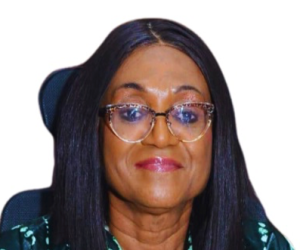At the just concluded African Bar Association (AfBA) Annual Conference in Accra, experts sounded a unified call for Africa to take control of its digital future by developing indigenous Artificial Intelligence (AI) systems, enforcing robust data protection laws, and embedding human rights into digital governance. The session, themed “Artificial Intelligence and Digital Transformation: Navigating the Future of Africa,” featured leading voices including Chinelo Audrey Ofoegbunam, Antoinette Essilfie, Dr. Ugoji Adanma Eze, and Solomon Vendaga Ater. Their collective message was clear: Africa must resist becoming a passive consumer of imported technology and instead build a digital ecosystem rooted in its own realities, values, and priorities.
Chinelo Audrey Ofoegbunam, who chaired the session, warned that the benefits of AI will elude Africa unless governments move decisively to address infrastructure and governance gaps. She noted that while AI could transform sectors like health, agriculture, and finance, the continent remains at risk of “digital colonisation” due to dependence on foreign-owned data systems and cloud platforms. “We must not let others write our digital destiny,” she said. Ofoegbunam called for the implementation of national AI strategies that promote local innovation, ethical data use, and human rights. She urged African leaders to invest in homegrown digital infrastructure, data centers, and technology education to ensure that AI development benefits African societies rather than external interests.
Expanding on the global context, Ghanaian lawyer Antoinette Essilfie examined “The EU AI Act: A Path to Progress or a Straitjacket for African Innovation?” She compared Europe’s strict AI regulations with Africa’s emerging frameworks, warning that replicating Western models could stifle African creativity. “If Africa copies without adapting, we risk becoming laboratories for others’ technologies rather than laboratories of our own progress,” she said. Essilfie called for harmonized continental laws that balance innovation and regulation, and urged African states to strengthen enforcement capacity and coordination through the African Union’s Continental AI Strategy.
Dr. Ugoji Adanma Eze, Chairman of the AfBA Human Rights and Constitutional Law Committee, emphasized that technology must serve humanity, not control it. In her presentation, “The Human Rights and Public Value of Data,” she argued that data should be recognized as a public good and protected as fiercely as natural resources. “In the digital age, data is Africa’s new gold — we must guard it jealously,” she said. Dr. Eze highlighted the importance of securing biometric and financial data, ensuring equitable digital inclusion, and building public trust in AI systems through transparency and accountability. She warned that unregulated digital governance could deepen inequality and reinforce existing social divides if human rights principles are ignored.
Adding geopolitical depth to the discussion, Solomon Vendaga Ater, in his paper titled “The Geopolitics of Artificial Intelligence and the Risk of Digital Colonisation in Africa,” explained that AI is now central to global power struggles among the United States, China, and the European Union. He argued that Africa’s dependence on foreign technology firms—who control most of the continent’s data, digital infrastructure, and AI research—poses a direct threat to sovereignty. “Without strong local governance, Africa risks becoming digitally colonised,” Ater warned. He noted that foreign corporations dominate over 95 percent of Africa’s data infrastructure, while much of the continent’s information is stored and processed abroad, making it vulnerable to exploitation.
Ater identified several pathways through which digital colonisation operates: foreign control of infrastructure, algorithmic bias that discriminates against Africans, economic dependency through imported software, and policy influence shaped by non-African regulations such as the GDPR. He called for urgent investments in local AI research, indigenous data systems, and compute infrastructure. His recommendations included enforcing local data protection laws, establishing regional data centers, and creating an Africa-First AI procurement policy that prioritizes homegrown solutions. “Only by developing local AI for local realities can Africa ensure that technology empowers rather than exploits,” he said.
In conclusion, the four speakers converged on a single vision for Africa’s digital sovereignty. They agreed that Africa must transition from data compliance to data value creation—shifting from defensive digital regulation to proactive innovation. Ofoegbunam emphasized infrastructure and skills, Essilfie called for balanced regulation, Eze championed rights-based governance, and Ater demanded geopolitical self-determination through indigenous AI. Together, they outlined a roadmap for Africa to become a digital leader rather than a digital colony—an Africa that creates its own technology, safeguards its data, and defines its role in the global AI revolution.





